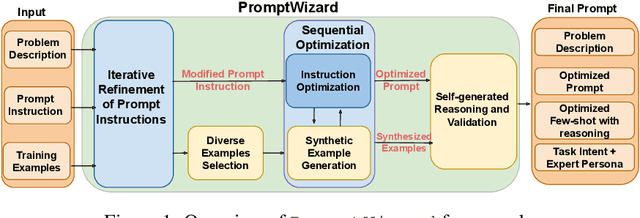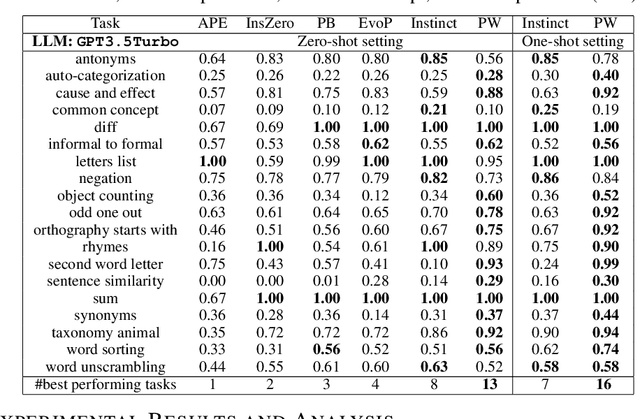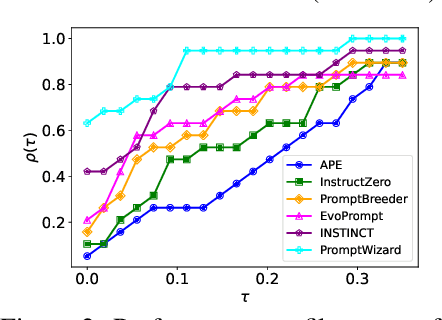Eshaan Agarwal
PromptWizard: Task-Aware Agent-driven Prompt Optimization Framework
May 28, 2024



Abstract:Large language models (LLMs) have revolutionized AI across diverse domains, showcasing remarkable capabilities. Central to their success is the concept of prompting, which guides model output generation. However, manual prompt engineering is labor-intensive and domain-specific, necessitating automated solutions. This paper introduces PromptWizard, a novel framework leveraging LLMs to iteratively synthesize and refine prompts tailored to specific tasks. Unlike existing approaches, PromptWizard optimizes both prompt instructions and in-context examples, maximizing model performance. The framework iteratively refines prompts by mutating instructions and incorporating negative examples to deepen understanding and ensure diversity. It further enhances both instructions and examples with the aid of a critic, synthesizing new instructions and examples enriched with detailed reasoning steps for optimal performance. PromptWizard offers several key features and capabilities, including computational efficiency compared to state-of-the-art approaches, adaptability to scenarios with varying amounts of training data, and effectiveness with smaller LLMs. Rigorous evaluation across 35 tasks on 8 datasets demonstrates PromptWizard's superiority over existing prompt strategies, showcasing its efficacy and scalability in prompt optimization.
SwissNYF: Tool Grounded LLM Agents for Black Box Setting
Feb 15, 2024



Abstract:While Large Language Models (LLMs) have demonstrated enhanced capabilities in function-calling, these advancements primarily rely on accessing the functions' responses. This methodology is practical for simpler APIs but faces scalability issues with irreversible APIs that significantly impact the system, such as a database deletion API. Similarly, processes requiring extensive time for each API call and those necessitating forward planning, like automated action pipelines, present complex challenges. Furthermore, scenarios often arise where a generalized approach is needed because algorithms lack direct access to the specific implementations of these functions or secrets to use them. Traditional tool planning methods are inadequate in these cases, compelling the need to operate within black-box environments. Unlike their performance in tool manipulation, LLMs excel in black-box tasks, such as program synthesis. Therefore, we harness the program synthesis capabilities of LLMs to strategize tool usage in black-box settings, ensuring solutions are verified prior to implementation. We introduce TOPGUN, an ingeniously crafted approach leveraging program synthesis for black box tool planning. Accompanied by SwissNYF, a comprehensive suite that integrates black-box algorithms for planning and verification tasks, addressing the aforementioned challenges and enhancing the versatility and effectiveness of LLMs in complex API interactions. The public code for SwissNYF is available at https://github.com/iclr-dummy-user/SwissNYF.
 Add to Chrome
Add to Chrome Add to Firefox
Add to Firefox Add to Edge
Add to Edge